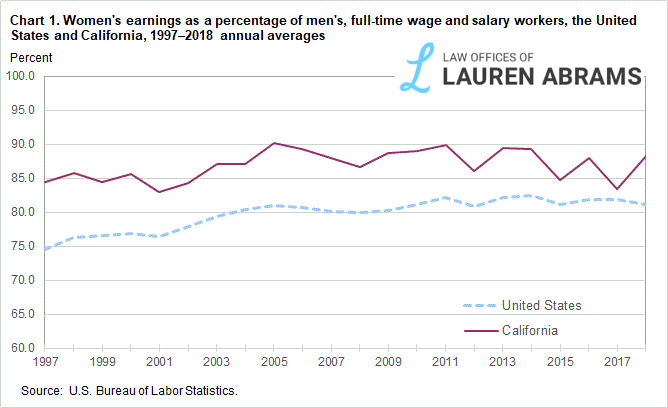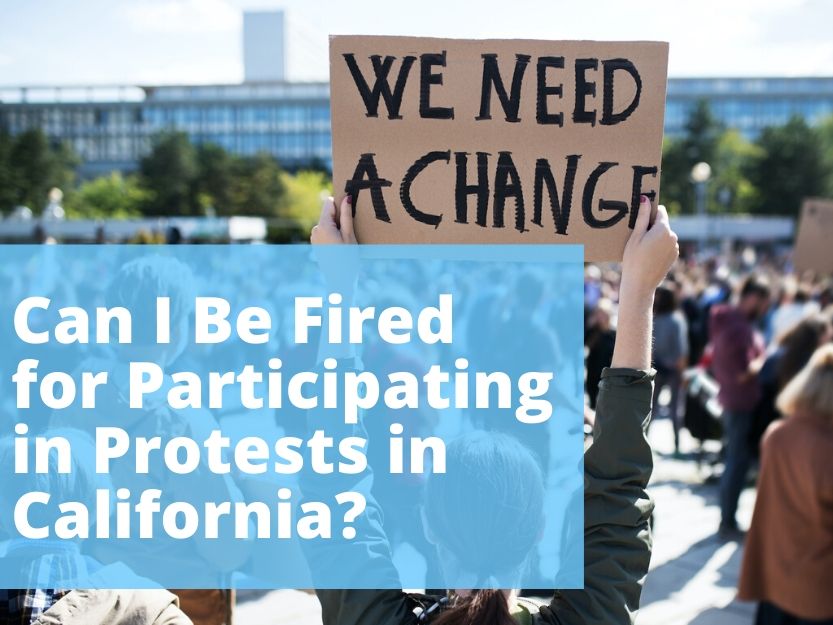Los Angeles Employment Law Blog

California’s Gender Wage Gap
The gender wage gap is real. In short, women earn less than men for doing the same work. According to the United States Bureau of Labor Statistics, the gender wage gap in California has ranged between 10% and 17% over the last 20 years.

California Makes Progress On Anti-Retaliation Laws
In a previous post, we briefly touched on the passage of Assembly Bill 1947 (AB 1947), which California Governor Gavin Newsom signed on September 30, 2020. This new anti-retaliation legislation amends California’s Labor Code regarding employer retaliation against whistleblowers. The law provides a longer period of time for whistleblowers to file a retaliation claim and allows courts to award attorney fees to whistleblowers.

California Employment Law Update Fall 2020
Governor Gavin Newsom signed a slate of pro-employee legislation into law in the past month, including critical freelancer/independent contractor and family leave laws. In addition, businesses with more than 100 employees are now required to report data on salary by gender and race to the California Department of Fair Employment and Housing, providing more transparency into the wage gap.

Great News For Employees in California!
Families in California should celebrate. Governor Newsom signed SB1383 into law, significantly expanding California’s family and medical leave coverage. The bill will go into effect January 1, 2021. Previously, only people who worked at companies of 50 or more employees were covered by the California Family Rights Act (CFRA). Now employees who work for smaller employers are covered, too.

Law Protecting Workers From Mandatory Arbitration Blocked by Big Business
If you were offered a job, but it required you to give up certain rights, including the right to sue your prospective employer over future employment law violations, would you take it? You’re competent, easy to get along with and professional, so if that offer has the right number of zeroes behind it, you probably would, right? Now what if you found out that giving up those rights enabled your employer to cover up multiple employee claims of sexual impropriety on the part of an executive spanning a decade or more?

The Global Pandemic – Widening the Gender Pay Gap
According to the United Nations International Labor Organization, the economic crisis and the continued decline in working hours caused by the COVID-19 pandemic will impact 1.6 billion workers, or half the global workforce.

The Most Common Types of Workplace Retaliation: Your Rights in California
In the United States, employers are prohibited from harassing and/or discriminating against their employees by a variety of federal, state, and local laws. Exercising labor rights under any of these anti-harassment and anti-discrimination laws is considered “protected activity.” After engaging in protected activity in California, an employee is shielded from workplace retaliation by the Labor Code, the Fair Employment and Housing Act (“FEHA”) and other whistleblower protection statutes.

The Hundredth Anniversary of the 19th Amendment: Progress and Potential
America, and California in particular, has always been a place that believes in equality. However, individuals haven’t always practiced what they preach. The past several hundred years have been a long, uphill battle to help ensure everyone in the US is truly equal. In fact, August 26th was the 100th anniversary of the ratification of the 19th Amendment, when white women were officially granted the right to vote – a watershed moment for womens’ equality in the US.

Black Women’s Equal Pay Day
Today, Thursday, August 13, is Black Women’s Equal Pay Day. Why the 13th of August? Because it signifies the number of days into the year the average Black woman must work to equal her male colleagues’ pay from the previous year. In hard numbers, that means the average Black woman makes $0.62 for every $1.00 earned by men.

Can My Boss Fire Me for Protesting in California?
In response to hundreds of years of systemic racism, millions across the country are protesting. Many are protesting against police abuse and are calling for police defunding. While protesters are exercising their First Amendment rights to assemble and to free speech, it is important that you understand the difference in your rights under constitutional law and whether you have job-protected rights that stem from your protesting activity.
